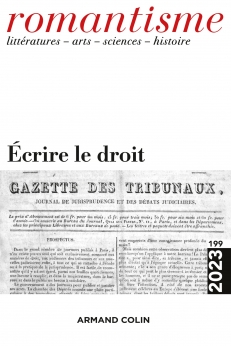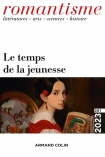
Romantisme N°199 (1/2023)
Pour acheter ce numéro, contactez-nous
Recevez les numéros de l'année en cours et accédez à l'intégralité des articles en ligne.
L’échange, formalisé par le contrat, constitue la forme dominante des relations dans la société décrite dans la Comédie humaine. L’article compare la conception générale du contrat, telle qu’elle ressort des règles prévues par le Code civil, en relation avec l’arrière-plan philosophique qui prévalut à son élaboration (Kant, Bentham) avec sa représentation dans Le Curé de Tours, Gobseck et Illusions perdues : derrière un droit formellement égalitaire se cache une société d’inégalités, les inégalités matérielles entre les hommes ne pouvant être éliminées puisque leur maintien et leur exploitation forment les conditions mêmes d’une économie capitaliste. L’égalité entre les parties contractantes, ainsi que l’autonomie du sujet de droit, comprise comme la capacité de faire un choix de manière rationnelle, s’avèrent utopiques ; comme la valeur de la justice contractuelle, elles doivent être inscrites sur la liste des « illusions perdues ».
Trade and exchange, as formalised in contracts, constitute the dominant form of human relations in the society described in the Human Comedy. This paper compares the general conception of the contract as it emerges through its rules in civil law in relation with its philosophical underpinnings in the writings of Kant or Bentham, with its representation in The Vicar of Tours, Gobseck and Lost Illusions: behind the formal equality of the law an unequal society reigns concealed, for the material inequalities between men cannot be eliminated since maintaining and exploiting them are the very conditions of a capitalist economy. Equality between the contracting parties, like the autonomy of the subject of the law, understood to be the capacity to make rational choices, are utopian; like the value of contractual justice, they should be listed as one of the "lost illusions".

